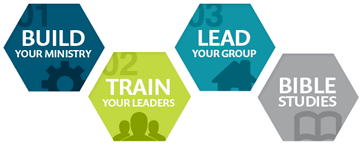Overview
While the popular mood of society toward the past alternates between love and loathing, Timothy Jones says that recalling the past is essential for knowing who we are as persons and as Christians. Why should we rehash what has already happened? What should we recall about ourselves and about God? How can memories of the past spur us on to spiritual renewal in the present and hope for the future?
Table of Contents
SCRIPTURE: Genesis 41:50–52; 50:19–20; Exodus 14:10–14; 15:22–24; 16:1–3; Deuteronomy 4:9–14; 5:12–15; 7:17–19; 8:10–18; 9:4–6 Psalm 25:7; 32:1–5; 42:1–5; 44:1–3, 23–26; 63:6–8; 77:1–12; 106:1–48; 119:49–56; 143:5–12; Lamentations 3:19–24, 40–42; Habakkuk 3:2;Hebrews 10:19–23; Revelation 21:1–4
LEADER'S GUIDE
• The Issue
Sample questions:
What event(s) in your life do you look back on as special evidence of God's love and care for you?
Why is it important to focus on God as well as remember our own experiences?
What evidence do you see of a current desire among different age groups to look back at the significant events of their past?
• The Scriptures
Sample Scriptures:
Read Exodus 14:10–14. Why do you think the children of Israel so quickly forgot God's powerful interventions on their behalf?
Hebrews 10:19–23: What hope does God give us concerning the parts of our lives we would like to forget?
• The Application
Sample application questions:
What personal steps can you take to keep the character and faithfulness of God fresh in your mind?
How can our painful memories become a valuable part of the positive remembering advocated in the Bible?
ARTICLE FROM CHRISTIANITY TODAY
• Reading Life Backwards, by Timothy K. Jones (September 1989, 13 printed pages)
Total number of pages—





